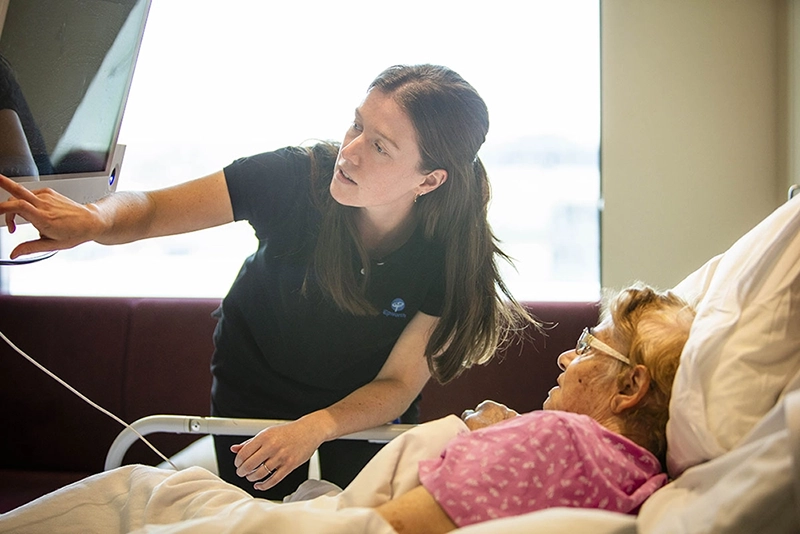عرض هذه الصفحة باللغة العربية
Stages and grades - Arabic
查看此页面的简体中文版本
Stages and grades - Mandarin
Xem trang này bằng tiếng Việt
Stages and grades - Vietnamese
Staging
Once there is a confirmed diagnosis for pancreatic cancer, the next step is to determine the stage of the cancer. Doctors will run tests to work out the tumour’s size and whether it has spread to other parts of the body. Determining the stage of the cancer will help your health professionals work out the best option for treatment.
TNM System
There are different staging systems used to determine the stage (extent) of cancers. The most common is the TNM system developed by the American Joint Committee on Cancer. The TNM system centres around three categories of information: tumour, nodes and metastasis.
| T (tumour) |
|
| N (nodes) |
|
| M (metastasis) |
|
The four stages of cancer
There is also a four-stage classification system for cancer. Like the TNM system, the four different stages are used to determine the cancer’s size and spread in your body.
Pancreatic cancer stages range from numbers 1-4.
- Stage 1: The cancer is small and is only located in the pancreas and hasn’t spread to lymph nodes or other parts of the body.
- Stage 2: The cancer has started to grow outside the pancreas into surrounding tissue and/or lymph nodes. It hasn’t spread to nearby organs.
- Stage 3: The cancer has spread into tissue, major blood vessels or nerves surrounding the pancreas. Cancer may be in the lymph nodes, but it hasn’t spread to other parts of the body.
- Stage 4: The cancer has spread to other organs, such as the liver, lung or bone.
Grading
The cancer grade describes how the cancer tissue sample looks when examined in a laboratory under a microscope. Cancer grading can also be described in terms of ‘differentiation’: well differentiated (grade 1), moderately differentiated (grade 2) or poorly differentiated (grade 3).
- Grade 1: The cancer tissue looks most like normal pancreas tissue.
- Grade 2: The cancer tissue is somewhere between normal and very abnormal pancreas tissue.
- Grade 3: The cancer tissue is very abnormal pancreas tissue.
The grading of the cancer tissue gives your doctors an idea of how fast the cancer may grow. The higher the number is, the faster the cancer is likely to grow
-
Additional resources
- American Cancer Society, Pancreatic Cancer Stages, American Cancer Society, 2017, accessed 6 March 2024
- https://www.cancervic.org.au/cancer-information/types-of-cancer/pancreatic_cancer/diagnosing_pancreatic_cancer.html
- https://www.canceraustralia.gov.au/affected-cancer/cancer-types/pancreatic-cancer/how-pancreatic-cancer-diagnosed

